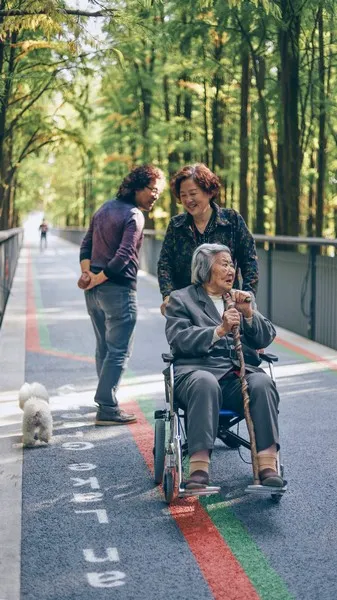Table of Contents
- Historical Context
- Cultural Significance
- Sociological Implications
- Moral and Ethical Questions Raised by Ubasute
- Ethical Dilemmas and the Balance Between Individual and Collective Well-being
- Recommendation: The Film ‘Plan 75’
- Conclusion
- Poll
- Think!
- Essay & Research Suggestions
- Further Reading
Ubasute, also known as “obasute” or “oyasute,” is a purported ancient Japanese practice where elderly parents were allegedly carried to a mountain or remote place and left to die, ostensibly to alleviate the burden on the family. Although the historicity of ubasute is debated among scholars, it holds significant cultural and symbolic resonance in Japanese literature and folklore. This essay outlines and explains the concept of ubasute, examining its historical context, cultural significance, and the sociological implications it holds in the context of family, aging, and societal values.
Historical Context
The term “ubasute” combines “uba” (old woman) and “sute” (to abandon), and is rooted in Japanese folklore and literature rather than concrete historical evidence. References to ubasute can be found in various texts, including the “Ubasuteyama” (The Mountain Where Old Women are Abandoned) tales and other folk stories. These narratives often describe an elderly person being carried to a desolate location, such as a mountain or forest, to die, either at their own behest to relieve their family of the burden of their care or as an act imposed upon them by their relatives.
The historicity of ubasute is contentious. While some argue that the practice was a myth or symbolic tale rather than an actual historical practice, others suggest it might have been rooted in dire economic circumstances where families faced extreme hardship and could not sustain all members. Japan’s feudal era, characterized by periods of famine and economic struggle, could have given rise to such extreme measures, although concrete evidence is scarce.
Cultural Significance
Ubasute serves as a powerful symbol in Japanese culture, encapsulating themes of filial piety, sacrifice, and the moral dilemmas faced by families under severe pressure. The practice is often depicted in literature and art as an ultimate act of self-sacrifice by the elderly to ensure the survival and well-being of the younger generations.
In Japanese folklore, ubasute is frequently portrayed with a mix of tragedy and reverence. The stories often highlight the deep sense of duty and love within the family, where the elderly person willingly accepts their fate for the greater good. This self-sacrifice is sometimes seen as an extension of the Confucian ideal of filial piety (孝, kō), which emphasizes respect and care for one’s parents and ancestors.
One of the most famous literary depictions of ubasute is in the short story “The Ballad of Narayama” by Shichirō Fukazawa, which explores the emotional and moral complexities of the practice. The story was later adapted into films, further cementing ubasute’s place in popular culture as a poignant and thought-provoking narrative.
Sociological Implications
From a sociological perspective, ubasute offers a lens through which to examine several key themes related to aging, family dynamics, and societal values in Japan.
Aging and Familial Responsibility
Ubasute underscores the tension between the care of elderly family members and the economic and social pressures faced by families. In traditional Japanese society, the family unit is the primary source of support and care for the elderly, reflecting the deep-rooted cultural value of intergenerational solidarity. The concept of ubasute, whether historical or mythical, highlights the extreme scenarios where this support system breaks down.
In contemporary Japan, the aging population poses significant challenges. With one of the highest life expectancies in the world and a declining birth rate, Japan faces a “super-aging” society. The burden of elder care falls heavily on families, particularly women, who are often expected to balance this responsibility with other roles. This situation has led to increased stress, financial strain, and even instances of elder abuse or neglect, echoing the desperate circumstances that might have given rise to the ubasute myth.
Economic Hardship and Social Cohesion
Get the full article AD FREE. Join now for full access to all premium articles.
View Plans & Subscribe Already a member? Log in.





